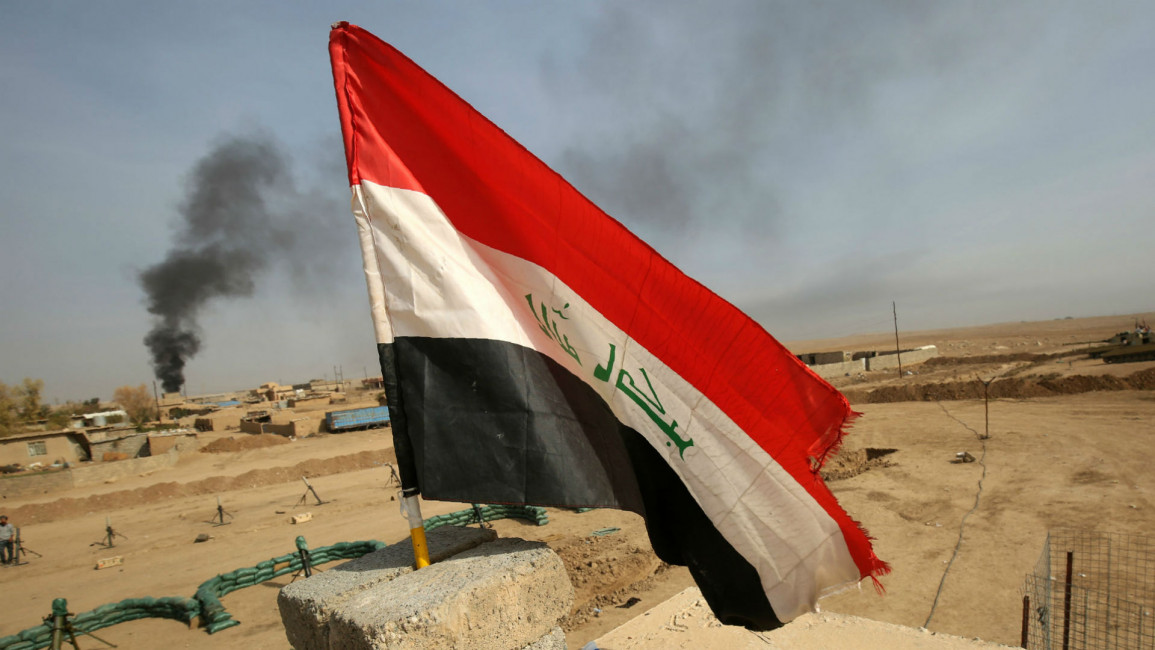ExxonMobil staff to return to work in Iraq: ministry
"ExxonMobil accepted that the 83 employees evacuated will resume their posts from Sunday," spokesman Assem Jihad told AFP.
He said Iraqi authorities, which had slammed the decision to pull out the workers from the West Qurna oil field as political, have taken "the necessary security measures for their return".
ExxonMobil pulled out its expatriate employees from the southern oil field after the US ordered non-essential personnel to quit its diplomatic missions in the country on May 15.
Washington cited an "imminent" threat from Tehran-linked armed groups in Iraq as tensions fuelled by US President Donald Trump's decision to withdraw from the Iran nuclear deal spiked.
It came 10 days after the Pentagon deployed an aircraft carrier task force and B-52 bombers to the Gulf to fend off an unspecified alleged plot by Tehran to attack US forces or allies.
Oil ministry spokesman Jihad insisted that the absence of the foreign workers had not affected production as the bulk of the workforce is Iraqi.
The return of Exxon came after Iraqi and American officials engaged in dialogue following the landing of a Katyusha rocket near the US Embassy in Baghdad last month.
The rocket crashed into Baghdad's Green Zone, which houses government offices and embassies including the US mission, Iraqi security services said in a statement.
The rocket caused no casualties.
Sources at the time told The New Arab that Iraqi officials were trying to reassure US embassy staff and that the Iraqi embassy in the US was working to prevent “any malicious consequences” from the attack.
The Green Zone, where the US embassy is located, is one of the world's most high-security institutional quarters.
Located in the centre of the Iraqi capital, it houses the Iraqi parliament, the prime minister's office, the presidency, other key institutions, top officials' homes and foreign embassies.
The American embassy in Baghdad, surrounded by concrete walls, is the world's largest embassy.
Both the US and Iran are key allies of Iraq, and Baghdad has been under pressure from Washington to limit ties with its neighbour.
During the three-year battle to oust the Islamic State group from Iraqi cities, Iran-backed Shia militias on the ground effectively fought on the same side as US-led coalition warplanes in the skies.
But since Iraq declared victory over the jihadists in December 2017, relations between Washington and Tehran have deteriorated sharply.
Rising tensions
The rising tensions came after US President Donald Trump unilaterally withdrew from the 2015 Iran nuclear deal in May last year. His administration has since reimposed punishing sanctions on the Islamic Republic.
But the dispute between Washington and Tehran has recently ratcheted up further as the US has increased its military presence in the region over alleged "Iranian threats."
Last month, Asharq Al-Awsat reported a Washington request to redeploy US forces in the Gulf was approved by Saudi Arabia and a number of GCC states, according to informed Gulf sources.
The redeployment of forces was approved based on “bilateral agreement” to protect energy supply and “prevent Iran from disrupting maritime traffic in that region,” the report said, quoting the sources.
Follow us on Twitter: @The_NewArab



